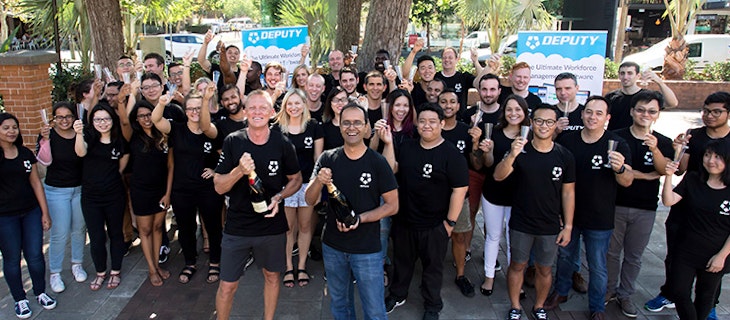
Why Net Neutrality Matters
Policymakers in the United States are grappling with Net Neutrality for the fourth time in a decade. Recently, our U.S office participated in a Day of Action with other tech companies and privacy groups to bring attention to the importance of net neutrality policies and defend internet freedom. It’s an important issue to us, one where we strongly favour a free and open internet with fair rules that promote competition, choice and innovation. And as the decisions made in the U.S. are often a precedent to those made in Australia, it’s an idea worth repeating.
What is Net Neutrality?
Net neutrality ensures that all web traffic is treated equally. This means that Internet Service Providers (ISPs) can’t block or slow down data from unaffiliated websites and apps, nor can they give preference to traffic from companies that pay extra.
This concept means a lot to us. If ISPs had charged for preferred treatment when Drew and Arash founded Dropbox in 2007, we might never have gotten off the ground. Everyone deserves the same chance we had.
Why it matters
A free and open internet ensures that great services and products win in the market, not simply those who have the deepest pockets. And it means that internet users can access what they want without interference. Simply put, Net Neutrality works—for network operators, for companies like ours, and most importantly, for everyday people.
A new Internet Association white paper shows that network operators have continued to expand their networks with increased investments every year since 2009—with no downturn after the United States adopted strong net neutrality rules in 2015. Many millions more of you also started using Dropbox during those years. The Internet Association white paper chronicles how countless other companies also have depended on net neutrality as they grow their businesses. Ultimately, internet users are the biggest winners, with faster networks delivering even more innovation and choice.
The Australian connection
Currently, Net Neutrality isn’t a major concern in Australia considering the fundamental difference in how those in the U.S. are charged for their internet (by speed) than in Australia (by data limit). However, the introduction of the National Broadband Network (NBN) over the next decade will introduce the infrastructure that has so far led to this debate in America – where ISP’s can charge more for ‘Fast’ or ‘Slow’ lanes for certain websites or content as they please. For example more than a third of us have a streaming video on demand (SVOD) service like Netflix or Stan, which uses a significant volume of data that clogs up bandwidth. ISPs like Optus have hinted at charging services like Netflix more for delivery of their content, while TV services like Foxtel may run into traffic concerns as they move into a broadband-based distribution strategy over satellite. But as the NBN is a government-funded infrastructure program backed by watchdogs like the Australian Competition and Consumer Commission (ACCC), the likelihood of anti-net neutrality regulation is less than what is currently happening in the U.S.
Policymakers and the ACCC will continue to weigh the best legal framework to safeguard these protections, but our bottom line is that the future of the internet depends on strong net neutrality rules. As a technology and cultural leader, the decisions made in the U.S. will set a precedent for the world – while it does, we’ll continue to make ourselves heard.


